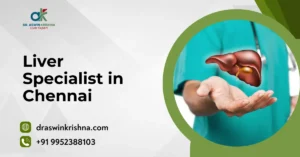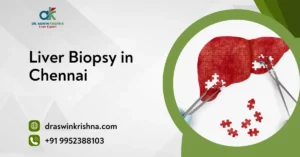Fatty liver disease is a condition where excess fat builds up in the liver. This can happen without causing any immediate harm, but if left untreated, it may lead to serious complications. There are two main types: non-alcoholic fatty liver disease (NAFLD) and alcoholic fatty liver disease. Hepatic steatosis is another term for fatty liver, while NASH disease refers to a more advanced form of NAFLD. In this article, we’ll explore the symptoms, causes, risk factors, and treatment options for fatty liver.
What is Fatty Liver Disease?
Fatty liver disease, also known as hepatic steatosis, occurs when fat accumulates in the liver cells. It’s divided into two main types: alcoholic fatty liver disease and non-alcoholic fatty liver disease (NAFLD). In NAFLD, the liver stores fat without any alcohol consumption. In more advanced cases, this condition can develop into NASH disease, or non-alcoholic steatohepatitis, which can lead to inflammation and liver damage. NAFLD medication can help manage the condition, but lifestyle changes are key to the treatment of post-transplant care.
Fatty Liver Disease and Life Expectancy
Many wonder about life expectancy with fatty liver disease. The answer depends on how early the disease is diagnosed and managed.
- Early-stage fatty liver disease: When managed with lifestyle changes like diet, exercise, and medical supervision, many individuals can lead a normal, healthy life.
- Non-alcoholic steatohepatitis (NASH): If the condition progresses to NASH, inflammation and liver scarring may reduce life expectancy with fatty liver disease if untreated.
- Cirrhosis or liver failure: In advanced cases, untreated fatty liver disease can lead to liver failure, significantly shortening lifespan.
Tips to Improve Life Expectancy:
- Adopt a healthy diet rich in fiber and low in saturated fats.
- Maintain a healthy weight through regular exercise.
- Avoid alcohol and manage other health conditions like diabetes or high cholesterol.

Types
There are two main types of fatty liver disease:
- Non-alcoholic fatty liver disease (NAFLD): This type occurs in people who don’t drink alcohol or drink very little. It’s often linked to obesity, type 2 diabetes, and metabolic syndrome.
- Alcoholic fatty liver disease: This type is caused by heavy alcohol consumption. It can lead to alcoholic hepatitis and cirrhosis if not managed.
Each type requires specific management and lifestyle changes.
Causes of Fatty Liver Disease
- Obesity and Limited Physical Activity: One of the main causes of fatty liver disease is obesity, particularly central obesity where fat accumulates around the abdomen. This condition makes the liver more susceptible to fat deposits, especially when paired with a sedentary lifestyle that slows metabolism and reduces fat burning.
- Alcohol Consumption: Heavy alcohol use is strongly linked to alcoholic fatty liver disease. Alcohol affects liver metabolism, leading to fat buildup and liver inflammation. Even moderate alcohol intake can worsen existing non-alcoholic fatty liver disease, making it a risk factor for both types.
- Metabolic Conditions: People with diabetes and insulin resistance face higher risks because excess sugar in the bloodstream is converted into fat. Over time, this fat accumulates in liver cells, disrupting normal liver function.
- Poor Diet and High Cholesterol: Consuming diets rich in fried foods, processed snacks, refined carbohydrates, and sugary drinks leads to fatty deposits. High triglyceride and cholesterol levels further compound the risk, making liver fat storage more likely.
- Genetic and Hormonal Factors: Family history can influence liver health, with genetics playing a role in fat metabolism. Hormonal imbalances, such as those linked to thyroid disorders or polycystic ovary syndrome (PCOS), also contribute significantly.
Symptoms
- Early Signs: Fatty liver disease often develops silently with minimal or no initial symptoms. Fatigue, vague abdominal discomfort, and mild weakness are some of the earliest fatty liver disease symptoms. Since these are nonspecific, many individuals overlook them until the condition progresses.
- General Progression: As the disease advances, more noticeable issues like unexplained weight loss, persistent tiredness, and loss of appetite emerge. Some may also experience nausea or difficulty concentrating, reflecting how the liver’s reduced efficiency impacts the body.
- Fatty Liver Symptoms in Females: Women may notice irregular menstrual cycles, hormonal fluctuations, or difficulty maintaining healthy weight levels. Hair thinning or changes in skin texture can also be subtle but important warning signs of fatty liver symptoms in females.
- Severe Manifestations: In advanced stages, complications like jaundice, swelling of the abdomen (ascites), and enlarged spleen appear. Leg swelling and confusion due to toxin buildup signal severe progression.
- Gender-Specific Outlook: Since female hormone balance can influence liver fat storage, women are at risk of distinct challenges. Recognizing these unique differences is vital to early intervention, helping reduce risks before patients begin asking, is fatty liver dangerous at later stages.
Diagnosis
- Initial Examination: Diagnosis usually starts with assessing lifestyle, alcohol consumption, and family history. A doctor may also evaluate weight, blood pressure, and signs of insulin resistance, which are linked to liver fat accumulation.
- Blood Tests: Liver function tests are a primary tool to detect abnormal enzyme levels such as ALT and AST. While these tests don’t confirm fatty liver directly, they serve as early indicators prompting further evaluation.
- Imaging Techniques: Ultrasound is the most common method to identify fat in the liver. Advanced scans like CT, MRI, and FibroScan provide clearer imaging, helping determine fat severity and the extent of stiffness or scarring.
- Liver Biopsy: In more complex cases, a biopsy may be performed, where a small sample of liver tissue is examined under a microscope. This remains the gold standard for assessing inflammation, fat accumulation, and fibrosis.
- Monitoring and Follow-up: Regular evaluations ensure that fatty liver disease treatments are effective. Early detection not only prevents progression but also improves life expectancy with fatty liver disease. A combination of non-invasive imaging and routine blood tests makes ongoing management more effective.
Prevention and Reversal of Fatty Liver
- Healthy Weight Management: Losing just 5–10% of body weight can dramatically reduce liver fat. Adopting portion control, reducing refined sugars, and increasing physical activity are essential lifestyle steps for preventing progression.
- Exercise and Physical Activity: Consistent physical activity, such as 30 minutes of brisk walking or strength training, enhances metabolism and burns stored fat. Regular exercise also improves insulin sensitivity, reducing risk factors that worsen fatty liver disease.
- Balanced Diet: Diets rich in whole grains, lean proteins, vegetables, and healthy fats like omega-3s support liver health. Avoiding fried foods, sugary beverages, and processed snacks is critical to both prevention and reversal.
- Alcohol Moderation: Since alcohol accelerates damage, limiting or completely avoiding it is vital. Patients often ask is fatty liver dangerous when paired with drinking habits, and the answer is yes, particularly if alcohol is consumed regularly.
- Medical Supervision: Regular monitoring of diabetes, cholesterol, and blood pressure plays a critical role. When combined with fatty liver disease treatments, these measures improve recovery and extend life expectancy with fatty liver disease. With consistent effort, many patients can even reverse fatty liver naturally.
Who is at Risk for Fatty Liver Disease?
Several factors increase the likelihood of developing fatty liver disease, including:
- Obesity – Excess body weight, especially around the abdomen, increases fat storage in the liver.
- Type 2 Diabetes – High blood sugar levels contribute to liver fat accumulation.
- High Cholesterol and Triglycerides – Elevated fat levels in the blood increase the risk.
- Metabolic Syndrome – A combination of obesity, diabetes, and high blood pressure heightens susceptibility.
- Excess Alcohol Consumption – Chronic alcohol use damages liver cells, leading to alcoholic fatty liver disease.
- Poor Diet – Consuming processed foods, sugary drinks, and high-fat meals contributes to liver fat buildup.
- Sedentary Lifestyle – Lack of physical activity reduces fat metabolism, worsening liver function.
- Genetics – Family history can play a role in developing fatty liver disease.
Complications
If fatty liver progresses without treatment, it can lead to serious complications:
- Liver cirrhosis: Scarring of the liver tissue.
- Liver failure: The liver loses its ability to function properly.
- Liver cancer: Chronic fatty liver disease increases the risk.
- Heart disease: People with fatty liver may also face higher risks for cardiovascular conditions.
Early diagnosis and treatment can help prevent these complications.
Treatments
While there is no specific medication to reverse fatty liver, the following treatment strategies help manage and prevent its progression:
- Weight Management – Losing 5-10% of body weight significantly reduces liver fat.
- Diabetes and Cholesterol Control – Managing these conditions through diet, exercise, and medications improves liver health.
- Medications – Certain drugs, like Vitamin E and pioglitazone, may be recommended for non-alcoholic fatty liver disease in specific cases.
- Avoiding Alcohol – Cutting down or completely avoiding alcohol prevents further liver damage.
- Regular Checkups – Routine liver function tests help monitor progression and detect complications early.
- Liver Transplant (in severe cases) – For advanced liver disease, transplantation may be the only option to improve life expectancy with fatty liver disease.
What are Some Lifestyle Changes that Can Help with Fatty Liver Disease?
Making long-term lifestyle changes is essential in reversing fatty liver and improving overall liver function. Key recommendations include:
✔ Healthy Diet:
- Increase intake of fruits, vegetables, whole grains, and lean proteins.
- Reduce saturated fats, processed foods, and refined sugars.
- Consume foods rich in omega-3 fatty acids, such as fish, nuts, and seeds.
✔ Regular Exercise:
- Engage in at least 30-45 minutes of moderate exercise, like walking or cycling, five days a week.
- Strength training can improve insulin sensitivity and reduce liver fat.
- Drink plenty of water to aid digestion and flush out toxins.
- Green tea and coffee have been linked to improved liver health.
✔ Adequate Sleep & Stress Management:
- Poor sleep and high stress can worsen fatty liver disease; practicing mindfulness and getting 7-8 hours of sleep is essential.
By making these changes, individuals can effectively manage their condition, reduce complications, and enhance life expectancy with fatty liver disease.
Conclusion
Fatty liver disease, including both hepatic steatosis and NASH disease, can lead to serious liver damage if not addressed. Understanding its causes, risk factors, and fatty liver symptoms in females is key to prevention and management. While there’s no cure for fatty liver, lifestyle changes like diet and exercise, along with proper management of underlying conditions, can significantly improve outcomes. Early detection and regular monitoring are essential to avoid complications such as liver cirrhosis and liver failure.
Read also Can You Live Without Your Liver.



